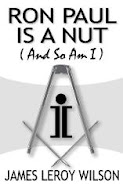Here's Walter Williams, Feb 9, on the federal government's Tsunami relief:
What would some of our ancestors say about government "charity"? James Madison, the father of our Constitution, said, in a January 1794 speech in the House of Representatives, "The government of the United States is a definite government, confined to specified objects. It is not like state governments, whose powers are more general. Charity is no part of the legislative duty of the government."
and
Tennessee Rep. Col. Davy Crockett, in a speech before the House of Representatives, said, in protest against a $10,000 appropriation for a widow of a distinguished naval officer, "We have the right, as individuals, to give away as much of our own money as we please in charity, but as members of Congress, we have no right to appropriate a dollar of the public money."
Now, here's Larry Elder, today, on Bush's budget:
But did the Founding Fathers ever intend for the federal government to involve itself in education, health care or retirement benefits? The answer, quite clearly, is no. The Constitution, in Article I, Section 8 – which contains the "general welfare clause" – seeks to restrain federal government, not expand it. Section 8 begins, "The Congress shall have Power To lay and collect Taxes, Duties, Imposts and Excises, to pay the Debts and provide for the common Defense and general Welfare of the United States," and then goes on to specify these powers. Does this allow the federal government to do anything it wants to promote the general welfare? Not according to Founding Father James Madison, also known as the father of the Constitution.
When Congress appropriated $15,000 to assist French refugees in 1792, Madison wrote, "I cannot undertake to lay my finger on that article of the Constitution, which granted a right to Congress of expending, on objects of benevolence, the money of their constituents." About the general welfare clause, Madison said, "With respect to the words general welfare, I have always regarded them as qualified by the detail of powers (enumerated in the Constitution) connected with them. To take them in a literal and unlimited sense would be a metamorphosis of the Constitution into a character which there is a host of proofs was not contemplated by its creators."
Congressman Davy Crockett [Whig-Tennessee] told a reporter in 1834 that he learned about limited government the hard way. Crockett, back from Washington, D.C., where he had voted in favor of $20,000 relief for victims of a large Georgetown fire the previous winter, encountered a local constituent plowing his field. The farmer, giving Crockett a cold reception, admitted voting for Crockett previously, but said, "You had better not waste your time or mine. I shall not vote for you again." The farmer then lectured Crockett on the Constitution, demanding to know where the document grants the authority to give away public money in charity.
After a lengthy discussion of law and principle, Crockett returned to Washington a changed man. He later stood up in the House when a bill was taken up for an appropriation for a naval officer's widow. Crockett eloquently explained to his fellow members that the Constitution did not allow such appropriations of public funds, however, they could each reach into their pockets to give the widow any amount they desired. The bill, which was expected to pass easily, failed.
James Leroy Wilson's one-man magazine.
Subscribe to:
Post Comments (Atom)




No comments:
Post a Comment